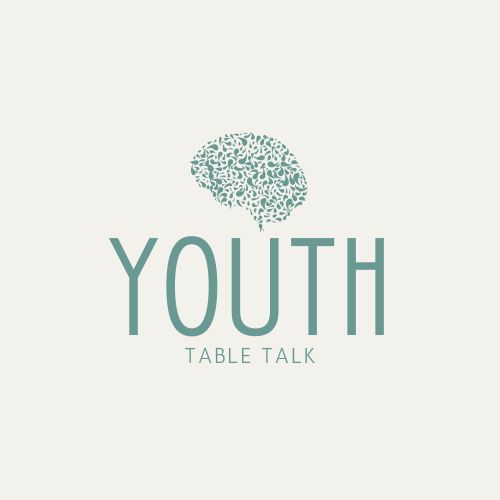Grief is a heavy emotion that is felt upon the loss of a loved one or challenging psychological trauma. To help people go through the phases of grief and come to terms with reality, grief counseling is advised. Grief can occur at any stage of life elders and teenagers are subjected to these feelings equally.
It is true that some people can endure trauma better than others because these people are thought to be emotionally strong. But there are such incidences in life, where a person feels completely helpless and thus grief walks in.
If someone is not able to jump back to the normal routine of life after a while, grief can turn into lifelong depression. This affects job, academics, social and personal life. When a person fails to cope with heavy emotions, grief counseling is recommended.
Teenagers face several stressful conditions. In addition to studies, a lot of stuff is always going on in their lives. The loss of a family member or a loved one, academic failure, sexual assault, or some other trauma can inflict their lives. Post-traumatic sadness is a real deal.
Grief can be present in various ways. Teenagers are high on the hormonal rush and their emotions are always exaggerated. They have secrets from family and friends. It is hard to tell what is going on in their lives. But if they are facing these things they can come out of this phase by taking the help of professionals offering Grief Counseling.
What is Grief counseling?
Grief counseling is a kind of psychotherapy that aims to aid people to recover from their personal losses. Mostly it is offered by experienced counselors who know techniques to cope with grief and mourning due to the death of someone close.
Grief counseling becomes compulsory for a person disabled by their grief, overwhelmed by loss to the extent that their normal coping processes are disabled or shut down. It eases expression of emotion and thought about the loss such as sadness, anxiety, anger, loneliness, guilt, relief, isolation, confusion, or numbness.
It is a process that helps patients to think positively about the challenges started due to the loss coping with related changes in their lives. Affected people have chaotic, depressing, tired, and troubled thinking patterns. These patterns badly affect their sleep and eating habits. These too are addressed in counseling.
Grief counseling helps the patients to keep themselves calm and composed while facing posed challenges through the strength of character and resolve.
Importance of Grief Counseling
Understanding Trauma
An important component of grief counseling is that it helps teenagers come to terms with their loss. The last and most essential phase of grief is acceptance, preceding the depression phase. If a person gets stuck in the depression phase, it is likely that the person’s life is going to shatter. He won’t be able to live a normal healthy life.
Depression symptoms including decreased appetite or binge eating, insomnia, lack of concentration and interest, introversion will be highlighted in such people. If they do not process their emotions of grief and loss, teenagers might have to live with depression for the rest of their lives. This means that they will not be able to lead a normal life. Their studies will be affected. They won’t be able to excel academically or professionally.
A lot of times, after losing a loved one, teenagers find it hard to accept the reality. The trauma impregnates their life to the extent that they become delusional.
But with grief counseling, they are able to process these emotions efficaciously.
Support Groups
Support groups are an important component of grief counseling. They are normally comprised of individuals who are undergoing a similar experience as anyone else in the group. The majority of support groups are started and managed by an experienced health professional. A support group can help the distressed individual in several ways:
It helps the affected person to lessen his/her sense of isolation often experienced after a tragedy.
It gives you the to discuss your hidden feelings with others who have had a similar loss. It can help you connect and recognize that you are not alone, and your feelings are quite normal.
It allows you to exchange related information with others in the group. For instance, a bipolar disorder support group exchanges information on research or resources for families. It would greatly benefit participants to make their lives better.
It provides an outlet to express hidden emotions which relieves stress and makes us feel better.
Talking about the deceased person
Some Teenagers are introverted and need to talk about their grief but don’t find an appropriate space to do so. A grief counselor encourages the grieving person to talk about their trauma and asks them that how they are coping with it. He makes them understand that life goes on and it is easy to forget their losses.
Distinguishing grief from trauma
If someone is feeling devastated from the memory or the situations around the death of a loved one, then a grief counseling expert will help them to readjust as per new realities of the life. He or she also helps in reframing their relation to the deceased to boost healthier grieving.
Addressing feelings of guilt
Some sensitive teenagers blame themselves without any reason when someone bad happened to their loved ones. Feeling of guilt and regret badly disturbs their lives. They feel that they didn’t do enough to save their loved ones.
The grief counseling expert helps the affected person to get rid of this guilt by accepting the reality and forgetting their loved one for a little while. It would help the grieved person to relax a little and make his/her life easy.
Final Thoughts
Grieving is a long-term process as it takes time to heal an emotional wound. The scale of the loss, your individual support systems, and your own coping mechanisms will identify the level of support you require to go through a loss and recover emotionally.
Teenagers must understand that grief is a normal response to a loss. He or she must consult a health care professional if time and conventional methods of support are not enough.
Ammad Hafeez Qureshi, a MBA finance with over 10 years of content writing experience, has worked with various firms.
Ammad Qureshi is a passionate writer who uses Youth Table Talk to support the next generation’s success in personal and professional lives, addressing common financial and Mental Health issues.
Do you want solutions for your social and psychological problems?
Then Subscribe to our newsletter

